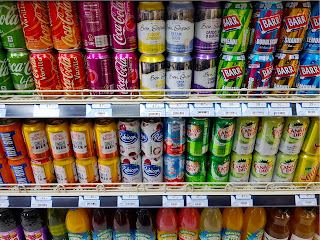Unique and Thriving! A Plastic Polymer Unlike the Others
Have you ever stopped to wonder about what makes plastics different or the differences in properties? What if I told you that plastics are the building blocks of several products, even ones you eat. Plastics are essentially long chains of polymers, and polymers are made up of simple units called monomers, hence beginning with "poly," which means many. The polymer called polyvinyl alcohol (PVOH) unique feature is that it can easily break down into its non-harmful monomers, being labelled as a biodegradable plastic.1 The difference between PVOH and other polymers comes from how it's created and the properties that give PVOH its versatility with how we use it in our lives.
PVOH is unique because it is created by chemically changing another polymer. The goal of chemically changing the polymer polyvinyl acetate (PVAc) is to change the acetate groups to alcohol groups. For this to happen, the process of hydrolysis is used where they dissolve polyvinyl acetate( PVAc) in methanol and add a catalyst to create the alcohol groups. 2
PVOH is an edible, non-toxic, film-forming and easily prepared environment-friendly polymer that shows good chemical resistance and mechanical properties.3 PVOH is considered eco-friendly and has a low toxicity rating because no toxic or harmful by-products are produced when incinerated or digested.4 The properties that make PVOH useful are:
Dissolves in Water: This is because PVOH is considered hydrophilic, which means that it is highly soluble in water and can dissolve in hot and cold water. That is why PVOH is used in creating the plastic films you will find around food supplements, food packaging, laundry detergent and dishwasher pods.
Emulsifier Agent & Adhesive: An emulsifier is added to help two liquids mix together and can be a thickening agent. PVOH is used in combining cement and creates the lubricant in eye drops. PVOH also acts as a binding agent in several types of glue and cosmetic products like mascara.
High Tensile Strength & Flexible: “Tensile” strength refers to the amount of stress a material can withstand before breaking or failing. PVOH is a flexible plastic that can mold and change with the change of temperature. PVOH can be found in textiles, yarn and carbon steel.
With its many properties and uses, PVOH is definitely a popular polymer used in many industries. There is a big push for eco-friendly products and to reduce the manufacturing of single-use plastics. PVOH has created a name for itself when compared to the other plastic polymers.
Image -<a href="https://www.freepik.com/photos/woman">Woman photo created by wayhomestudio - www.freepik.com</a>
<a href="https://www.freepik.com/vectors/infographic">Infographic vector created by vectorjuice - www.freepik.com</a>
Dissolvable Plastic: Should We Use it in Our Products? (n.d.). Retrieved from https://club.shopetee.com/blogs/sustainability/dissolvable-plastic-should-we-use-it-in-our-products
Polyvinyl alcohol. (n.d.). Retrieved from https://pubchem.ncbi.nlm.nih.gov/compound/11199
Musetti, Alessandro & Paderni, Katia & Fabbri, Paola & Pulvirenti, Andrea & Al-Moghazy, Marwa & Fava, Patrizia. (2014). Poly(vinyl alcohol)-Based Film Potentially Suitable for Antimicrobial Packaging Applications. Journal of food science. 79. 10.1111/1750-3841.12375.
Source, F. P. (n.d.). Polymer Properties Database. Retrieved from https://polymerdatabase.com/Films/PVOH Films.html





Comments
Post a Comment